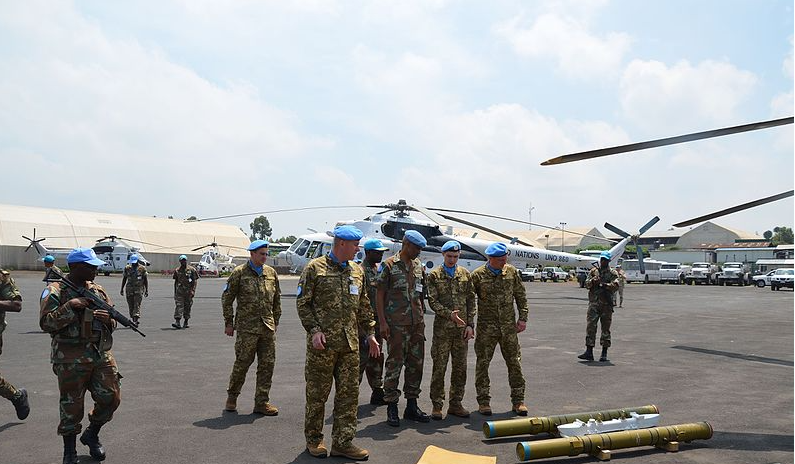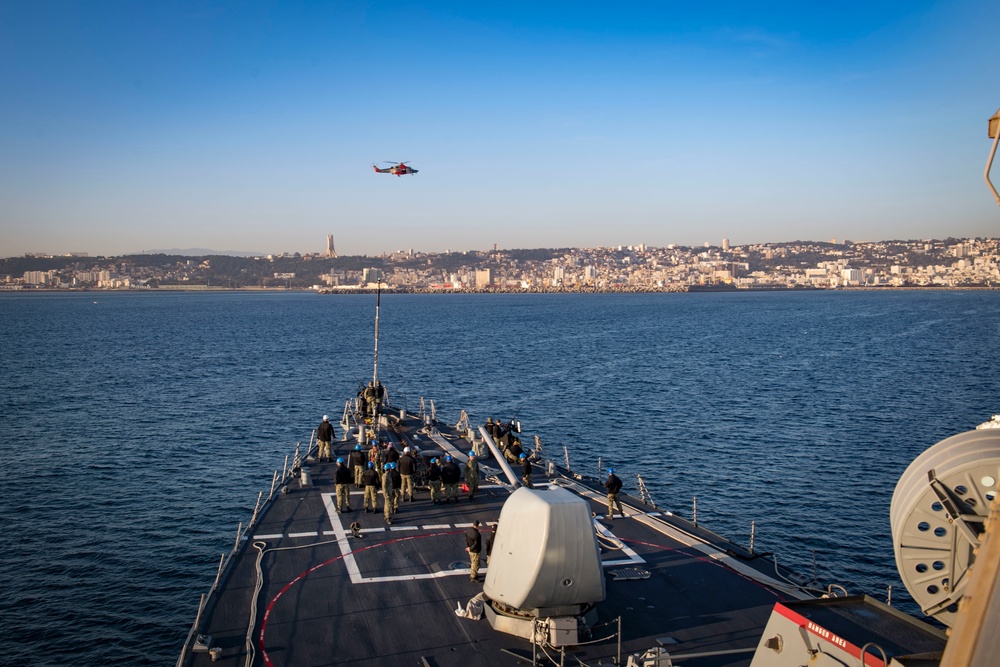“… the repercussions of the Russian-Ukrainian war are strongly present in these diplomatic moves, by virtue of Algeria’s strong strategic relationship with Russia and its stable relations with Western countries…”
Algeria has sought to remain neutral in the Russia-Ukraine conflict, but historical strategic relations with Russia and growing security concerns on its borders may draw it closer to Russia. As noted in the excerpts from the Saudi-funded Independent Arabia and the influential Saudi daily al-Sharq al-Awsat, these relations were on display during a late March visit to Algiers by a high-level Russian military delegation, during which the two sides agreed to hold joint anti-terror military exercises in southern Algeria in November. Algeria is a key buyer of advanced Russian weaponry and an attractive strategic partner for Russia in the current geopolitical climate due to its location on NATO’s underbelly and its abundant natural gas resources. Russia can help Algeria with two of its vital concerns: securing its southern border, particularly with Mali, and militarily balancing Morocco. Relations with Morocco have soured over the past year, and Morocco’s blossoming military partnership with Israel threatens to tilt the balance in its favor. Although the Algerian military has recently turned to China for some advanced weaponry, Russia remains its main security partner and possibly the only country willing to help Algeria maintain a favorable military balance with Morocco.
On 4 April, the speaker of the People’s National Assembly, Algeria’s lower house of parliament, hosted the Russian ambassador and reaffirmed Algeria’s commitment to its deep strategic relationship with Russia, in comments that were reported by the country’s official news agency Algeria Press Service. However, Algerian in-depth cooperation with Russia does not equate to enthusiastic support for Russia’s ongoing war in Ukraine. Like other countries of the region, Algeria hopes to stay out of a Russia-NATO conflict. Algeria has been explicit in endorsing a negotiated settlement to the conflict, and its foreign minister has been active in an “Arab Contact Group” that seeks to mediate between Russia and Ukraine. Still, Algeria’s relations with Russia run deeper than those of many other Arab countries, particularly when it comes to defense cooperation. Algeria joined Syria in the vote against expelling Russia from the UN Human Rights Commission, making them the only two Arab countries to do so. Most other Arab countries either abstained or refused to vote. Mali’s government, which is increasingly close to Russia and a strategically important partner of Algeria’s, also voted against the resolution.
Source:
“روسيا تسبق بلينكن إلى ‘حلبة الجزائر’
(Russia beats Blinken to ‘the Algerian Arena’),” Independent Arabia (Saudi-funded news website), 27 March 2022. https://tinyurl.com/mr2czhan
The Algerian Ministry of Defense announced that the Chief of Staff of the Army, Said Chengriha and other high-ranking officers met with members of a Russian delegation at the conclusion of their visit to Algeria. The Russian delegation was led by the Director of the Federal Service for Military and Technical Cooperation of Russia, Dmitry Shuvaev, and also included the Russian ambassador to Algeria. The meeting came at the end of the Russian delegation’s visit, from March 23 to 25, to attend the regular meeting of the Algerian-Russian Intergovernmental Committee in charge of military and technical cooperation…
Said Hadef, a researcher in Maghreb affairs, told The Independent… “It is difficult to predict what Russia was expecting from its allies, but it seems that the visit of the director of the Federal Service for Military and Technical Cooperation came under the weight of one month of war for Russia, and the consequent sanctions and Moscow’s fear of losing its allies.” He noted that the repercussions of the Russian-Ukrainian war are strongly present in these diplomatic moves, by virtue of Algeria’s strong strategic relationship with Russia and its stable relations with Western countries. This is making it move cautiously, as it seeks to preserve its positions and its allies, and at the same time avoids “angering” the West, led by Washington.
Source:
“مناورات عسكرية جزائرية ـ روسية تحاكي محاربة الإرهاب
(Algeria-Russia anti-terror military maneuvers),” al-Sharq al-Awsat (influential Saudi daily), 6 April 2022. https://tinyurl.com/3k8r9fuc
Yesterday, the Russian TASS news agency quoted the Russian Southern Military District as saying that joint anti-terror exercises of the Russian and Algerian ground forces will take place next November in Algeria. The upcoming maneuvers were discussed, according to the press office of the Southern Military District in the Russian city of Vladikavkaz, during the “first planning conference to prepare for joint Russian-Algerian ground forces anti-terror maneuvers.” The same source also announced that the military exercises will take place at a base located in the Adrar Governorate, in the far south of Algeria. According to the Russian Agency, during the conference, “the exercise’s scenario and the organization of logistics, including accommodation procedures, were coordinated.” It added that the maneuvers “will consist of tactical moves to search, detect and destroy illegal armed groups. On the Russian side, about 80 soldiers from the Southern Military District are scheduled to participate in the exercises.”
Source:
“رئيس المجلس الشعبي الوطني يستقبل السفير الروسي لدى الجزائر
(People’s National Assembly Speaker welcomes the Russian ambassador to Algeria),” Algeria Press Service (official Algerian news service), 4 April 2022. https://www.aps.dz/ar/algerie/124089-2022-04-04-14-29-34
On Monday, the Speaker of the People’s National Assembly, Mr. Ibrahim Bougali, received the Ambassador of the Russian Federation to Algeria, Mr. Igor Belyaev, in a meeting centered on the “outstanding bilateral relations” that unite the two countries, according to a statement from the parliament.… In addition, Mr. Bougali affirmed “Algeria’s commitment to its in-depth strategic partnership with Russia” and called for “exploiting all available possibilities to diversify the areas of cooperation.”


